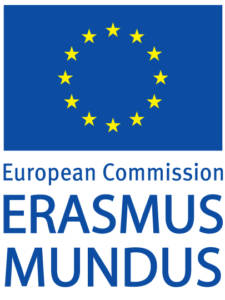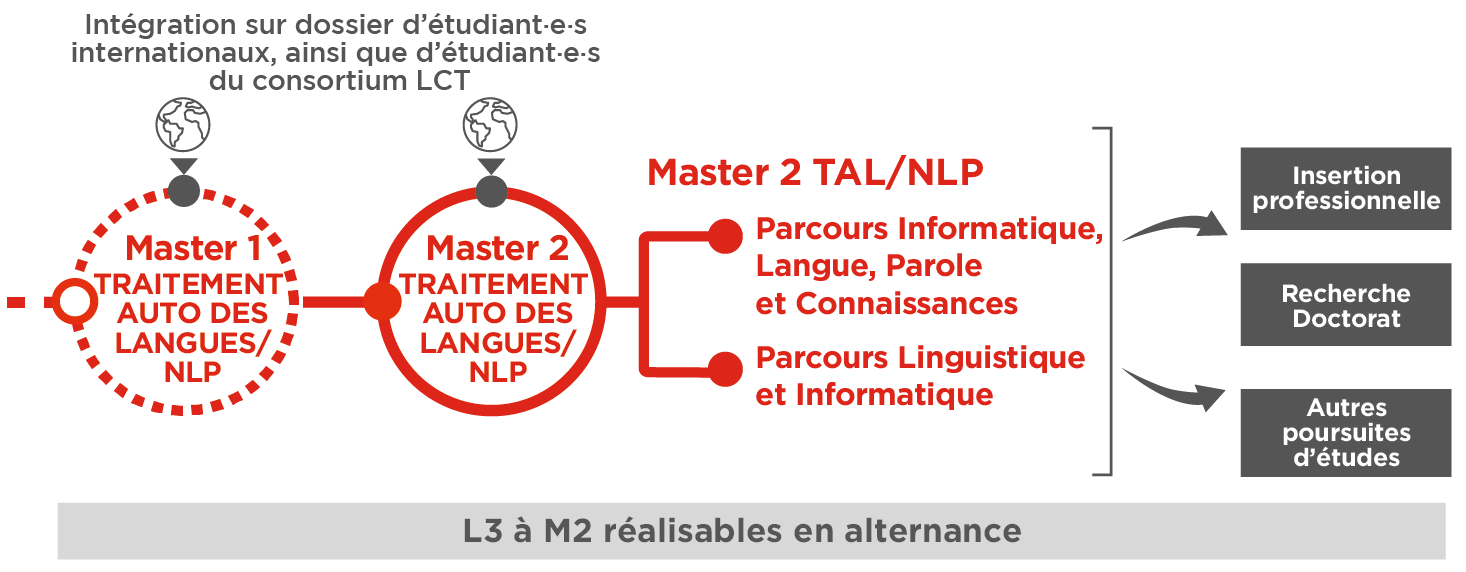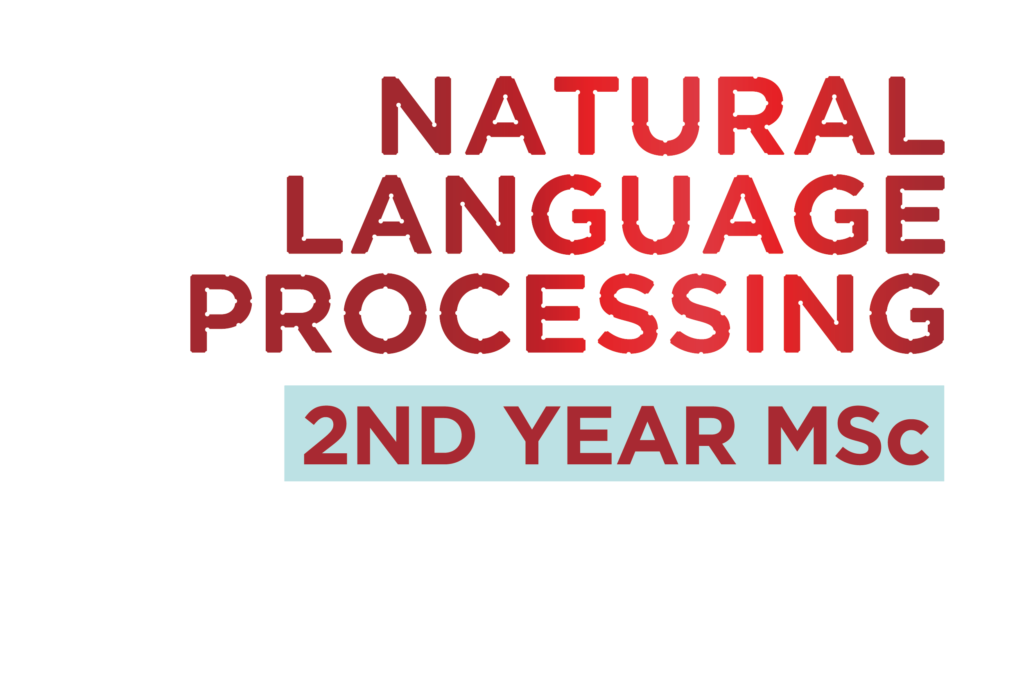1st year MSc
in Natural Language Processing
CAMPUS
POLE HERBERT SIMON
LANGUAGE
ENGLISH
CLASSROOM
ECTS CREDITS
60
Goals of the 1st year MSc in NLP
The first year of of the MSc Degree in NLP offers a multidisciplinary program dealing with computer science, natural language processing, cognitive science. You will also work on a group project (2 or 3 students) for about 1 year on a topic chosen in concertation with the teaching staff.
Presentation of the MSc Degree in NLP
The main goal of the MSc in Natural Language Processing is to bring you both theoretical and practical knowledge for your future job.
This means giving you strong assets in computer science, artificial intelligence, and multidisciplinary skills such as linguistics and natural language processing.
About Erasmus Mundus
 Our MSc degree in NLP is a part of the Erasmus Mundus consortium « Language and Communication Technologies (LCT) », which speaks to the international recognition of the quality training our program offers, as well as the multicultural environment it provides.
Our MSc degree in NLP is a part of the Erasmus Mundus consortium « Language and Communication Technologies (LCT) », which speaks to the international recognition of the quality training our program offers, as well as the multicultural environment it provides.
NLP Degree outline
After the 1st year MSc Degre in Natural Language Processing
Once you have passed the 1st year MSc Degre in NLP, you will enter the 2nd year MSc Degre in NLP.
1st year MSc in NLP course description (click on the title to access the course description)
Semester 7
PROBABILITIES, STATISTICS AND ALGORITHMS FOR AI
The course unit 701 deals with fundamental mathematical tools, particularly statistical and algorithmic tools, which are necessary to define and resolve an artificial intelligence problem. The course unit stresses a case study approach in order to ensure the acquisition of theoretical aspects and practical application.
DESIGN AND ACQUISTION OF CORPUS
This course unit aims to introduce techniques of construction, structuring, annotation and archival of textual oral or multimodal corpora, which play an essential role on one hand in the analysis of the structure of spoken and written language, and on the other hand in the training and evaluation of NLP algorithms. This subject is complex as it is necessary that (1) the corpora be restricted to a reasonable size in order to guarantee the proper collection of corresponding data and that (2) this data sufficiently represents the phenomena studied.
SOFTWARE ENGINEERING
- Ethics
- Tools for project
- NLP introdution
LINGUISTICS FOR NLP (1)
This course unit takes on one hand the fundamental elements of natural language processing and on the other hand the phonological and morphological elements, which are studied through a language sciences based approach.
PROJECT AND FOREIGN LANGUAGE
This course unit is composed of the first part of the year-long supervised project (which will be finalized in the second semester), as well as language classes. The project consists of group work (in pairs), which is supervised by researchers, in which the students will carry out the bibliographic part of the final report. Language classes will allow non-anglophone students to become more familiar with scientific english, the language in which all courses are conducted, whereas the french classes will facilitate non-francophone students’ social and cultural integration.
This course unit allows students to put to test their first skills acquired during the semester while synthesizing the different research questions concerned by a more open topic of research. Through this course unit students will be evaluated on the acquisition of targeted skills, which have been identified for this specialisation.
Semester 8
MACHINE LEARNING AND SEMANTIC WEB
This course takes on the fundamental principles of Machine Learning, of data mining and knowledge extraction. All the notions are illustrated through practical applications on real data.
Spoken corpus and options
This course unit is consecrated to the introduction to theoretical frameworks used in symbolic approaches to the modeling of language. It consists of mathematical logic and of formal languages. The objective is to familiarize the students with these formal models, their properties, the demonstration techniques associated with them, and the notions of calculability and complexity.
DATA SCIENCE
This course unit introduces fundamental techniques for the extraction, storage, cleaning, visualisation and analysis of data. We give a practical introduction to the tools and software libraries which allows the processing of data. We combine theoretical sessions with programming exercises which allows students to put into practice the software and concepts taught during the course.
LINGUISTICS FOR NLP (2)
This course unit takes up where the previous teachings of linguistics (course unit 704) left off, wherein the content and methodologies of the courses are, however, independent from these prior teachings. The courses are concentrated on syntax and semantics, as well as lexicology. In this context, the focus is put on the question of formalisation of linguistic rules.
PROJECT AND FOREIGN LANGUAGE
This course unit is made up of language classes as well as the second part of the year-long supervised project (UE 705) which is finalized during the second semester. The second part of the year-long project begins by following through with the procedure introduced in the first semester groupwork, and leads up to the presentation at the end of the year, explaining the implementation of the project, which puts to test all of the skills the student acquires during the first year of the program. The language classes allow students to become more comfortable with the knowledge of scientific english.
This course unit allows the student to apply the skills they have acquired throughout the year in aims to treat the various research questions that the research topic presents. The course unit also is an occasion to evaluate the student on the acquired skills that were identified for the specialisation.




